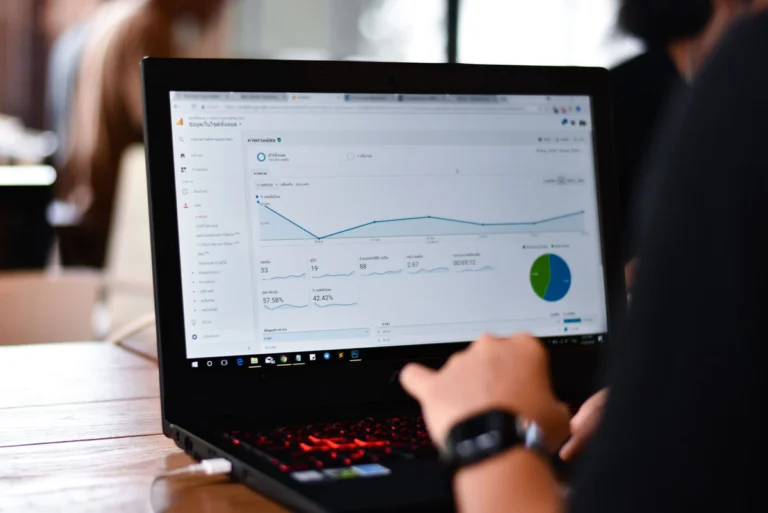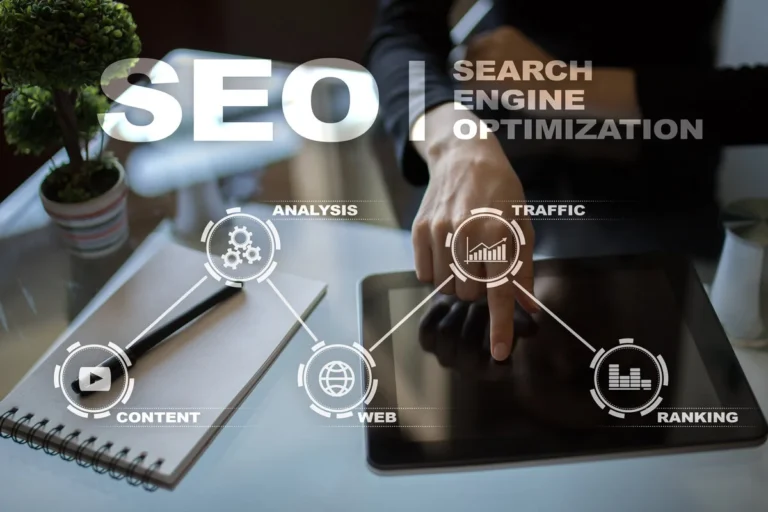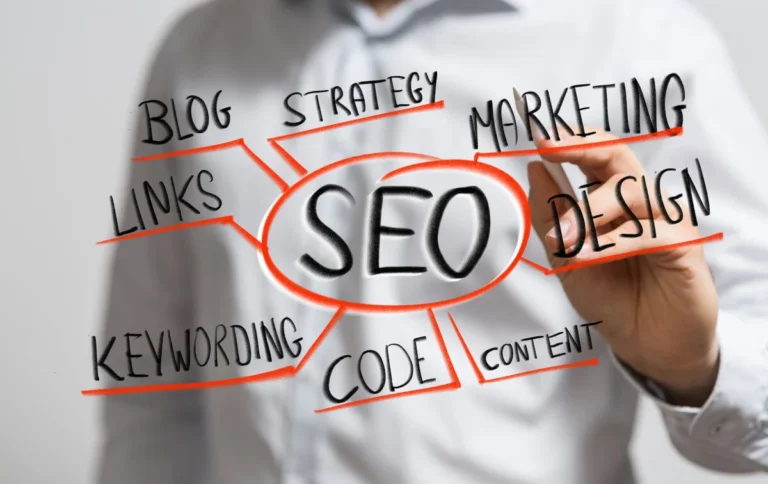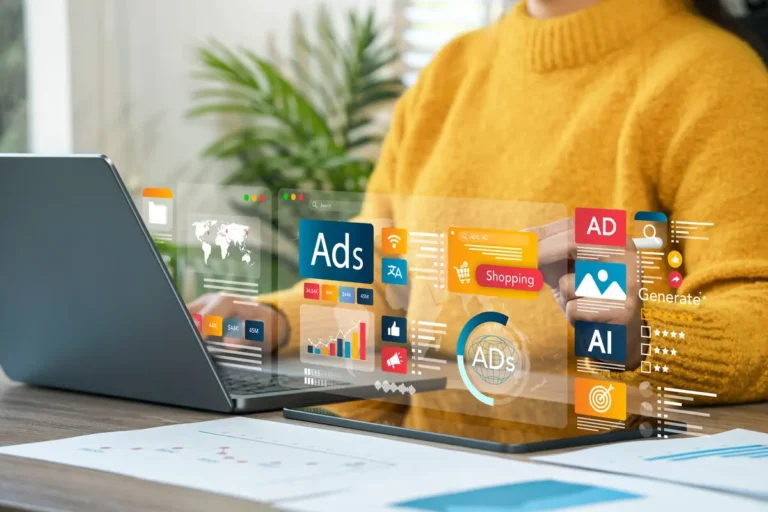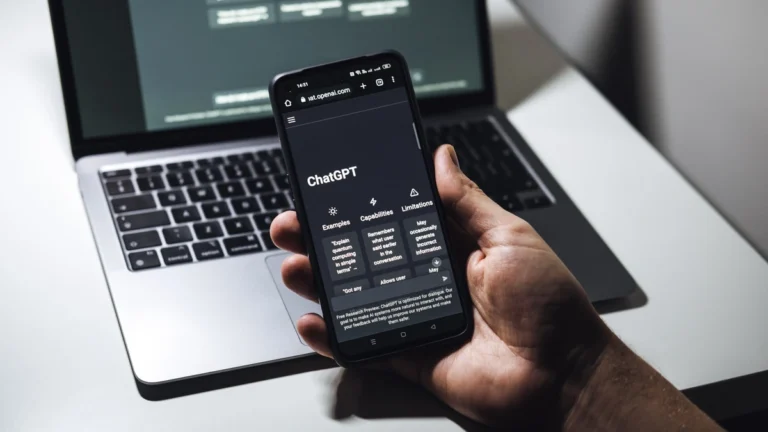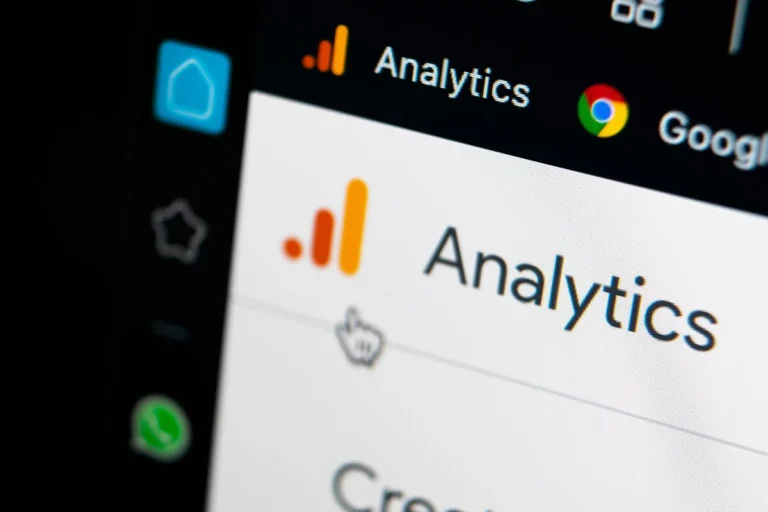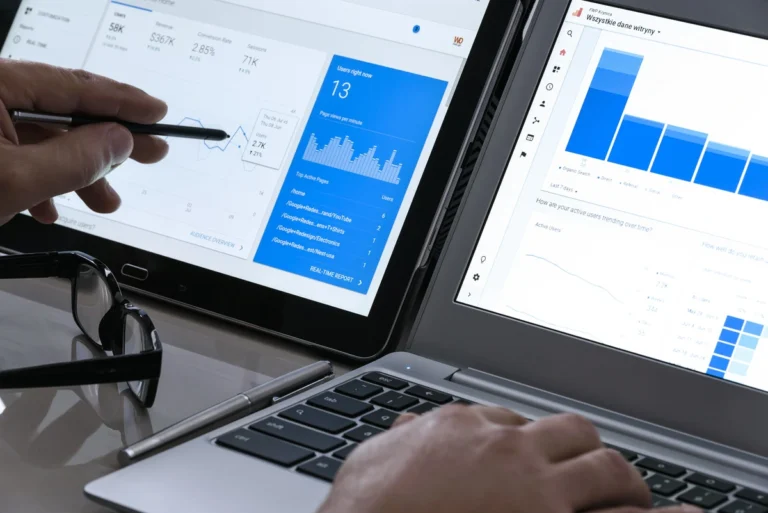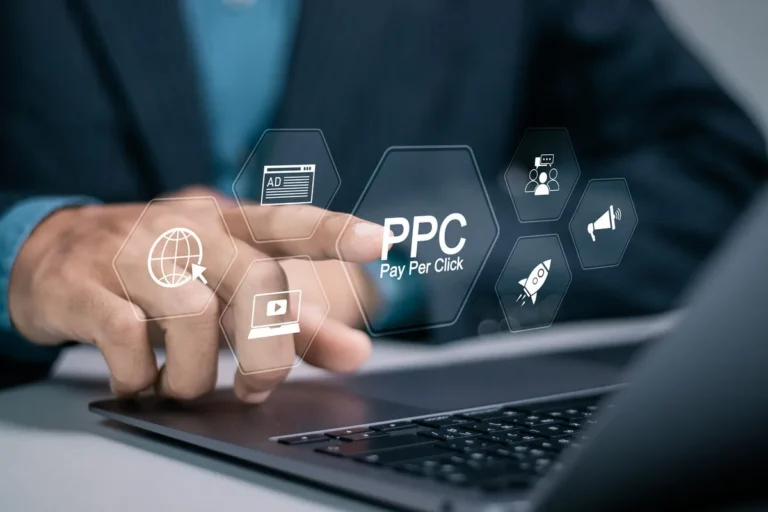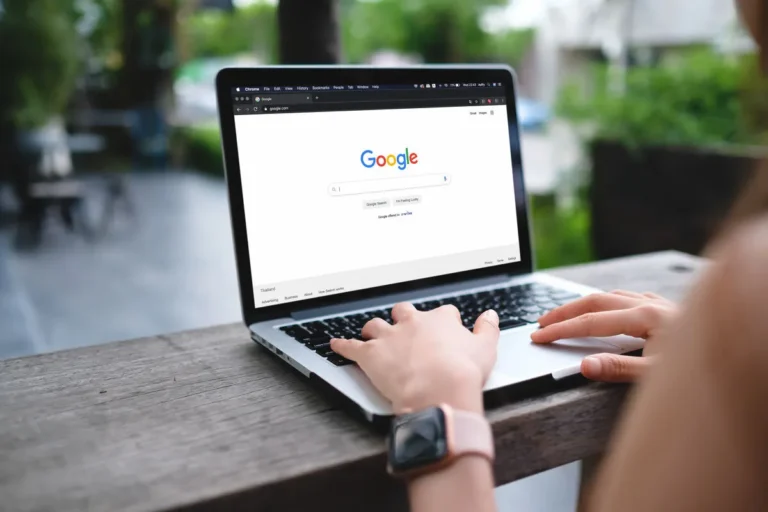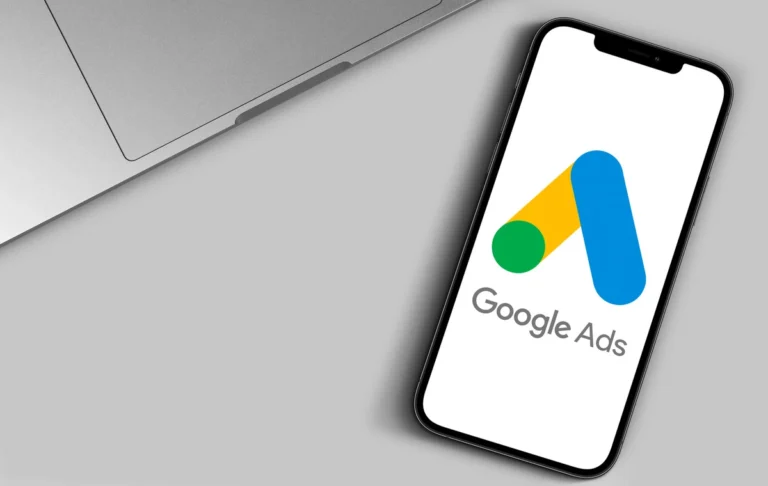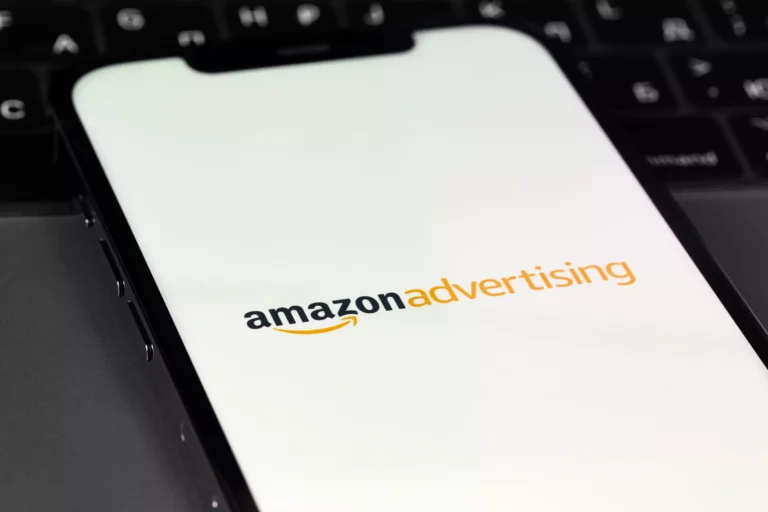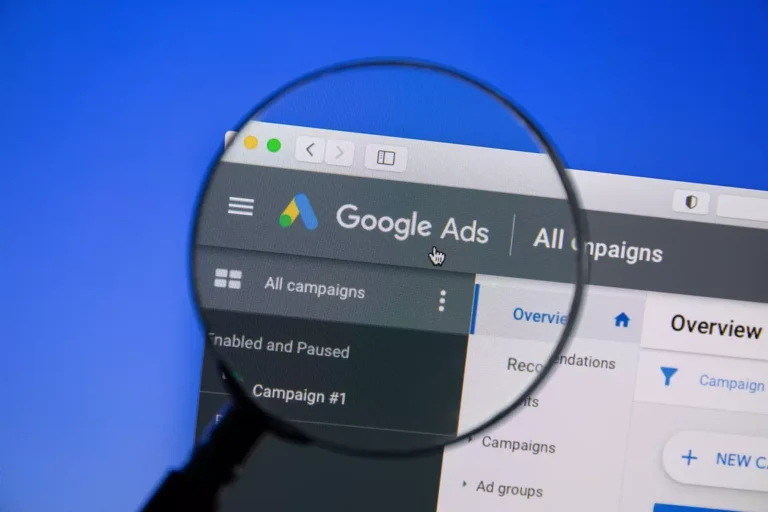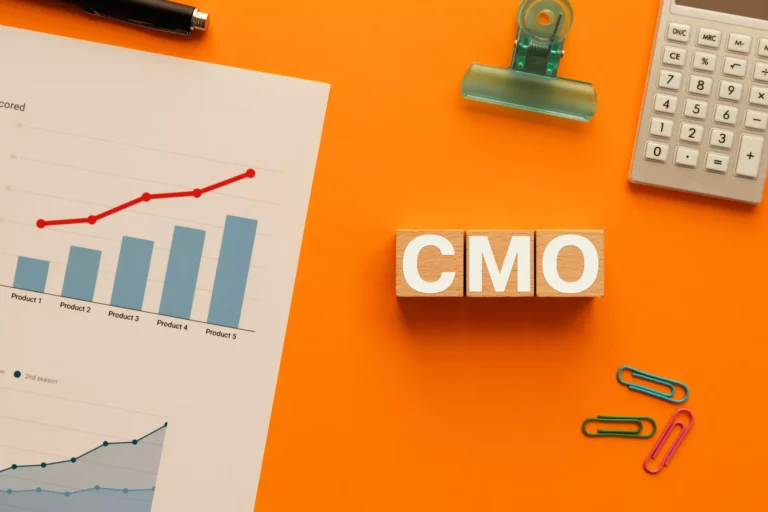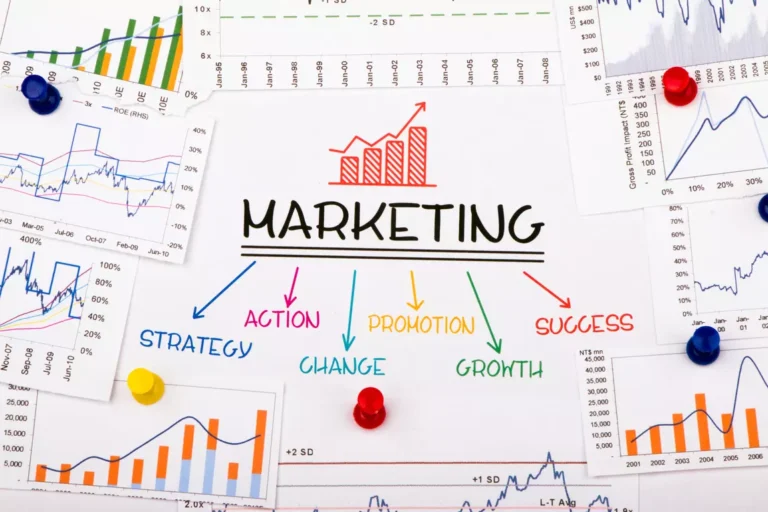Are Google Ads Worth It for B2B?
B2B Google Ads have transformed the landscape of digital marketing, providing businesses with targeted tools to reach their audience more effectively. A well-structured Google Ads campaign is crucial in achieving worthwhile returns, as it involves strategic keyword selection, careful budget planning, and precise targeting. Many businesses often ponder whether investing in Google Ads yields worthwhile returns. The question, ‘Are Google Ads worth it for B2B?’ and how much should you pay for PPC, can be addressed by exploring several facets.
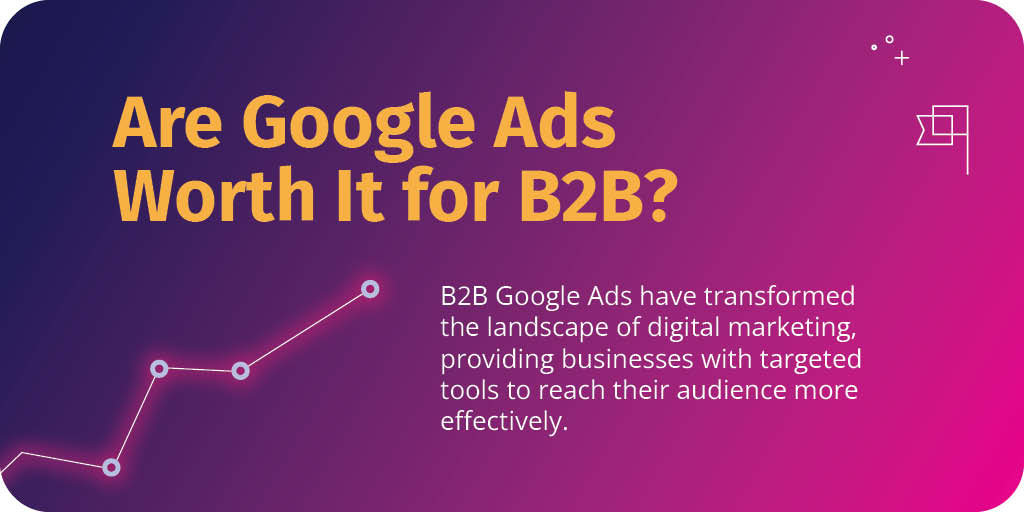
Assessing the ROI of Google Ads in B2B markets
Investing in Google Ads for a B2B market can indeed offer substantial returns on investment (ROI). However, relying too heavily on broad match keywords can lead to irrelevant ad placements and wasted ad spending. Unlike B2C, where consumers make impulsive purchases, B2B transactions generally involve longer decision-making cycles and higher purchase values. This complexity means every click through a well-crafted Google Ad can lead to considerable revenue. Metrics such as cost per acquisition (CPA) and conversion rates offer concrete data to measure the success of B2B Google Ads campaigns. Businesses can optimize their spending by continually monitoring and adjusting their ad strategies based on these metrics. A detailed analysis of these numbers can highlight the direct impact on the bottom line, making it easier to justify the expenditure.
Comparing B2B and B2C Google Ads Effectiveness
When comparing the effectiveness of Google Ads in B2B versus B2C markets, it is crucial to consider the different buyer journeys. Optimizing Google Search Ads is essential for effectively reaching B2B consumers and capturing search intent. B2C campaigns often aim for immediate conversions and short-term engagements, while B2B campaigns focus on nurturing leads and long-term relationships. Therefore, the success of Google Ads for small business often lies in the ability to generate high-quality leads that can be converted over time. Using advanced targeting strategies, businesses can ensure that their ads are seen by decision-makers within their industry, thereby increasing the likelihood of meaningful engagements.
Case Studies: Successful B2B Google Ads Campaigns
Examining Google ads for B2B examples can provide insights into successful strategies. Google Search Ads play a crucial role in these successful campaigns by focusing on keyword research, ad copy refinement, and regular performance reviews. For instance, SaaS companies often utilize Google Ads to drive traffic to free trials or demo sign-ups, capturing leads that can be converted into long-term customers. Another example is how professional services firms use content-driven ads to engage potential clients by offering valuable webinars or whitepapers. These campaigns demonstrate how effective Google Ads can be when targeted correctly, leading to impressive ROI and sustained growth.
Understanding the B2B Buyer’s Journey
Understanding the B2B buyer’s journey is crucial for creating effective Google Ads campaigns. The B2B buyer’s journey typically involves several stages: awareness, consideration, and decision-making. During the awareness stage, potential customers become aware of a problem or need and begin to research solutions. In the consideration stage, they evaluate different options and compare features and benefits. Finally, in the decision-making stage, they make a purchase decision.
To effectively target B2B buyers, it’s essential to understand their pain points, goals, and motivations at each stage of the journey. This can be achieved through market research, customer surveys, and analysis of customer data. By understanding the B2B buyer’s journey, businesses can create targeted Google Ads campaigns that speak to their needs and interests. Tailoring your ad copy and landing pages to address specific stages of the buyer’s journey can significantly enhance ad relevance and engagement, ultimately driving higher conversion rates.
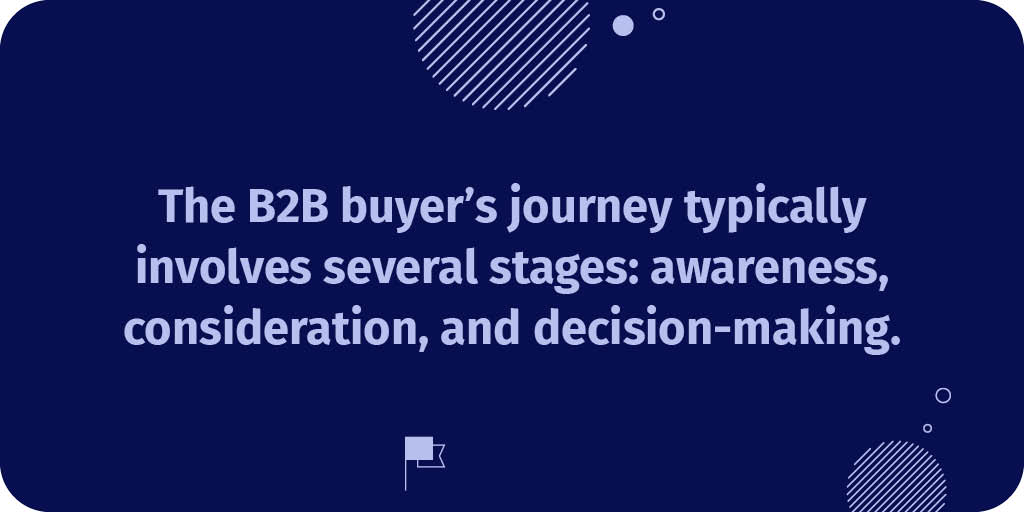
How to Use Google Ads for B2B Business
Understanding Google’s B2B ad capabilities
Leveraging Google’s vast advertising network for your B2B business can provide significant advantages. Google Ads offers a suite of tools specifically beneficial for B2B sectors, including advanced targeting options and comprehensive keyword capabilities tailored to reach decision-makers. Understanding these features is crucial. Google’s display and search networks allow advertisers to position their ads where potential B2B clients spend most of their online time.
Setting up your Google Ads account for B2B
Setting up your Google Ads account for a B2B business should focus on detailed audience segmentation and precise keyword targeting. When creating your account, ensure you outline your objectives clearly and set measurable goals. Allocate your budget effectively across campaigns, focusing on high-intent keywords relevant to B2B SaaS and other industries. Using features like Google Analytics, you can track conversions and monitor the performance of different ad groups in real time.
Targeting options and strategies for B2B audiences
Effective B2B Google Ads strategy hinges on precise targeting. Google Ads offers numerous targeting options including keyword targeting, remarketing, and placement targeting. For B2B specifically, leveraging LinkedIn ads integration can prove invaluable, allowing you to target industry professionals based on their job titles, industries, or even specific organizations. Additionally, audience targeting through custom intent audiences lets you reach users who are actively researching or considering competitors’ products.
Keyword research and selection for B2B
Keyword research is another critical component of a successful B2B campaign. Tools like Google Keyword Planner can help you identify high-value keywords and phrases with commercial intent. Look for keywords that your target audience uses in their research process. Focus on long-tail keywords that signal high intent, such as “enterprise software solutions” or “B2B marketing automation tools.” Incorporating these keywords into your ad copy and landing page content will enhance your relevancy and improve your Quality Score, lowering your CPC and increasing ROI.
Crafting Compelling Ad Copy
Crafting compelling ad copy is critical for grabbing the attention of potential B2B customers and driving conversions. Effective ad copy should be clear, concise, and relevant to the target audience. It should also highlight the unique benefits and value proposition of the product or service being advertised.
To craft compelling ad copy, businesses should focus on the following key elements:
- Headlines: Attention-grabbing headlines that clearly communicate the value proposition of the product or service.
- Descriptions: Clear and concise descriptions of the product or service, highlighting its key features and benefits.
- Calls-to-Action (CTAs): Strong CTAs that encourage potential customers to take action, such as “Sign up for a free trial” or “Get a quote today.”
- Keywords: Relevant keywords that align with the target audience’s search queries and interests.
By incorporating these elements, businesses can create ad copy that resonates with their target audience and drives conversions. Remember, the goal is to make your ad stand out in the crowded Google Ads platform, so focus on what makes your offering unique and valuable.
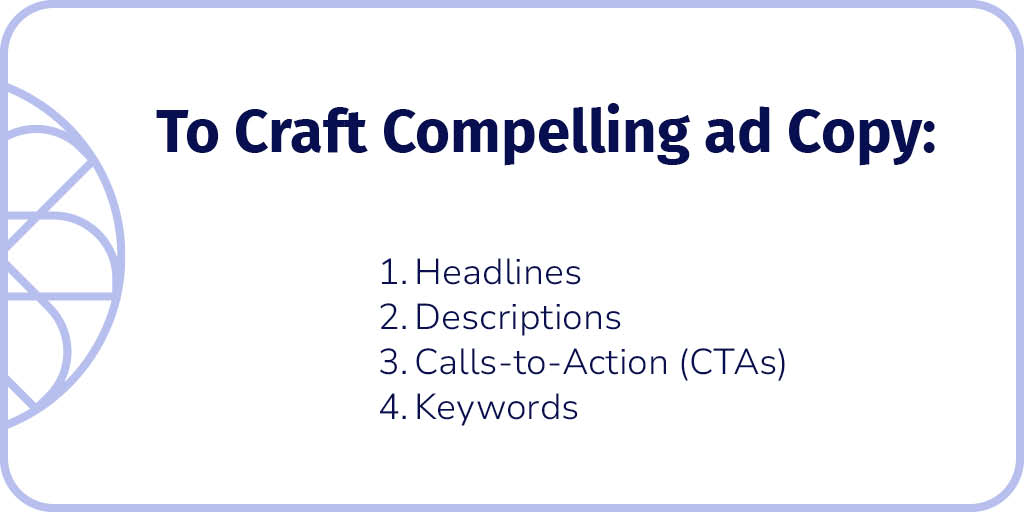
Do Ads Work For B2B?
Measuring Success: Metrics That Matter
One of the primary ways to determine whether ads work for B2B is by measuring success through key performance indicators (KPIs). These include Conversion Rate (CR), Cost Per Acquisition (CPA), and Return on Ad Spend (ROAS). In a B2B context, businesses often operate with longer and more complex sales cycles compared to B2C, making it essential to track these metrics at various stages of the funnel. Using tools like Google Analytics and integrated CRM systems can provide detailed insights into how well your ads are performing and where there might be room for improvement.
Choosing the Right Ad Types
Another critical factor in the effectiveness of B2B Google Ads strategies is the selection of the right ad types. Search Ads and Display Ads often serve different purposes within a B2B strategy. For instance, Search Ads are excellent for capturing users with high purchase intent, while Display Ads can be used to build brand awareness and nurture leads over time. Experimenting with various ad formats—such as responsive search ads and video ads—can also help to identify what resonates best with your target audience.
Overcoming Common Challenges
Despite their potential, running successful B2B ads comes with its own set of challenges. The competition for high-value keywords can be fierce, and B2B keywords generally tend to be more expensive. Furthermore, the complexity of B2B products or services can make it difficult to convey value propositions in a short ad. To overcome these challenges, it’s essential to focus on precise targeting, compelling ad copy, and continuous optimization. Incorporating long-tail keywords and negative keywords into your strategy can also help in reducing costs and improving ad relevance.
Leveraging these insights, you can make a compelling case for the effectiveness of ads in a B2B setting, particularly when paired with a robust B2B Google Ads strategy. With the right metrics, ad types, and adaptive measures to conquer common challenges, B2B ads can become a powerful tool for driving business growth.
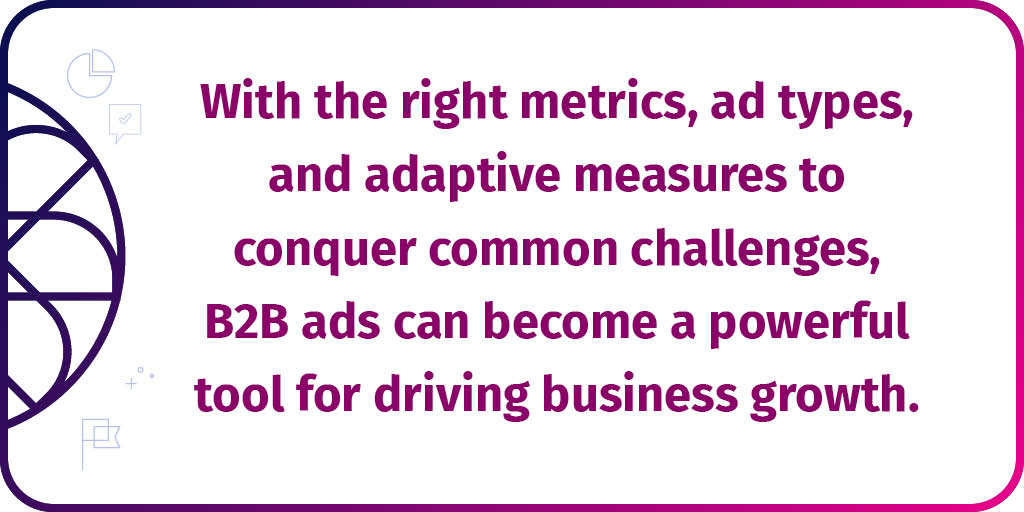
Common Mistakes to Avoid in B2B Google Ads
When creating B2B Google Ads campaigns, there are several common mistakes to avoid. These include:
- Not conducting thorough keyword research: Keyword research is critical for identifying relevant keywords and phrases that align with the target audience’s search queries. Without it, your ads may not reach the right audience.
- Not optimizing ad copy: Ad copy should be optimized for relevance, clarity, and concision to grab the attention of potential customers. Poorly written ad copy can lead to low click-through rates and wasted ad spending.
- Not using negative keywords: Negative keywords can help prevent ads from showing for irrelevant search queries and reduce waste. This ensures your budget is spent on high-intent searches.
- Not tracking conversions: Conversion tracking is essential for measuring the effectiveness of Google Ads campaigns and making data-driven decisions. Without it, you can’t accurately assess your ROI.
- Not optimizing landing pages: Landing pages should be optimized for relevance, clarity, and concision to drive conversions. A high click-through rate means nothing if your landing page cannot convert visitors.
By avoiding these common mistakes, businesses can create effective B2B Google Ads campaigns that drive conversions and revenue. Regularly reviewing and optimizing your campaigns will help you stay ahead of the competition and maximize your ad spend.
Advanced Tips for B2B Lead Generation Using Google Ads
Leveraging Google Merchant Center for B2B
When it comes to B2B businesses, Google Merchant Center is often underutilized. However, it can be a powerful tool for your lead generation strategy. By listing your B2B products and services, you have a greater chance of appearing in front of relevant search queries. Ensure that you optimize each listing with detailed descriptions, high-quality images, and accurate pricing information to attract potential B2B buyers.
Utilizing Advanced Ad Formats and Extensions
Google Ads offers a plethora of advanced ad formats and extensions that can significantly enhance your lead generation efforts. Formats like Showcase Shopping ads or promotion extensions can make your ads stand out while offering additional information like offers or detailed product insights.
Use the lead form extension to collect valuable information directly from your ads. This can help reduce friction in the conversion process by enabling potential clients to submit details without needing to leave the search results page.
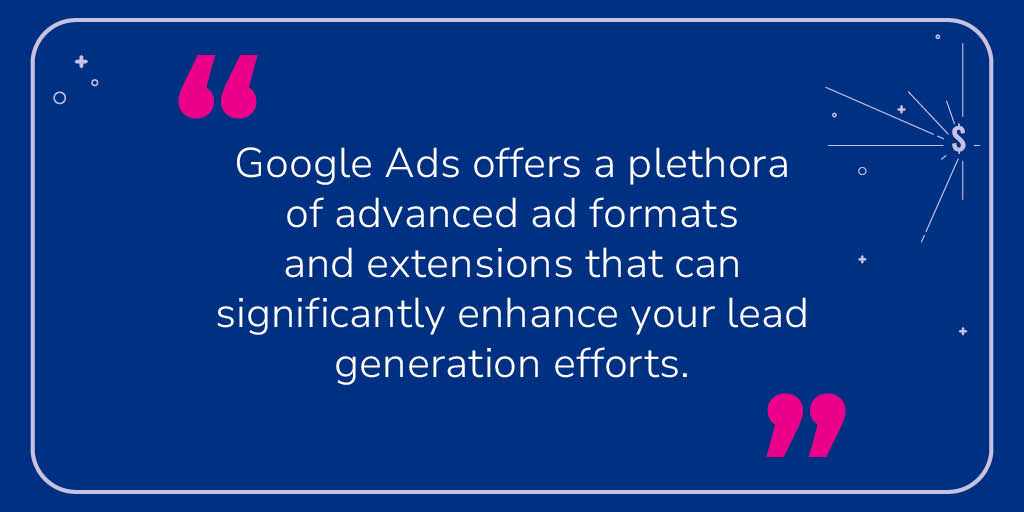
Optimizing Landing Pages for Lead Generation
A high clickthrough rate means nothing if your landing page cannot convert visitors. Optimize your landing pages by ensuring they are highly relevant to your ad content and keywords. Information should be clear, concise, and directed toward solving a potential client’s problem. Utilizing strong calls to action (CTAs), trust signals such as client testimonials, and easy navigation can significantly improve lead conversion rates.
Fast Page Load Speeds
One of the most overlooked aspects of landing page optimization is load speed. Slow-loading pages can drive potential leads away. Ensure that your landing pages load quickly to keep potential leads engaged.
Remarketing Strategies in B2B Google Ads
Remarketing can be a game-changer for B2B businesses. By targeting users who have already visited your site, you can re-engage them with personalized ads. This keeps your brand top-of-mind and increases the likelihood of conversion. Use custom intent audiences to target users who have shown a high level of interest in your business activities.
Furthermore, using Dynamic Remarketing, you can show tailored ads that include products or services your potential leads have previously viewed on your website. This personalization can dramatically improve your ad performance and, ultimately, your B2B lead generation results.
The realm of Google Ads is continuously evolving. Partner with Bohu Digital, an agency that leverages a data-driven approach, integrating CRM data with advanced ad strategies to boost your revenue efficiently. Take the first step towards unlocking your business’s full potential with a free consultation from Bohu Digital today.
Bidding Strategies for B2B Google Ads Campaigns
Bidding strategies are critical for optimizing B2B Google Ads campaigns and driving conversions. There are several bidding strategies to choose from, including:
- Cost-per-click (CPC): This bidding strategy involves paying for each ad click. It’s ideal for driving traffic to your website.
- Cost-per-conversion (CPA): This bidding strategy involves paying for each conversion, such as a sale or lead. It’s useful for campaigns focused on specific actions.
- Cost-per-Thousand Impressions (CPM): This bidding strategy involves paying for every 1,000 ad impressions. It’s effective for brand awareness campaigns.
- Target Return on Ad Spend (ROAS): This bidding strategy involves setting a target return on ad spend and adjusting bids accordingly. It’s perfect for maximizing revenue from your ad spend.
To choose the right bidding strategy, businesses should consider their campaign goals, target audience, and budget. By selecting the right bidding strategy, businesses can optimize their B2B Google Ads campaigns and drive conversions. Regularly reviewing performance and adjusting bids based on data insights will help you achieve the best results.
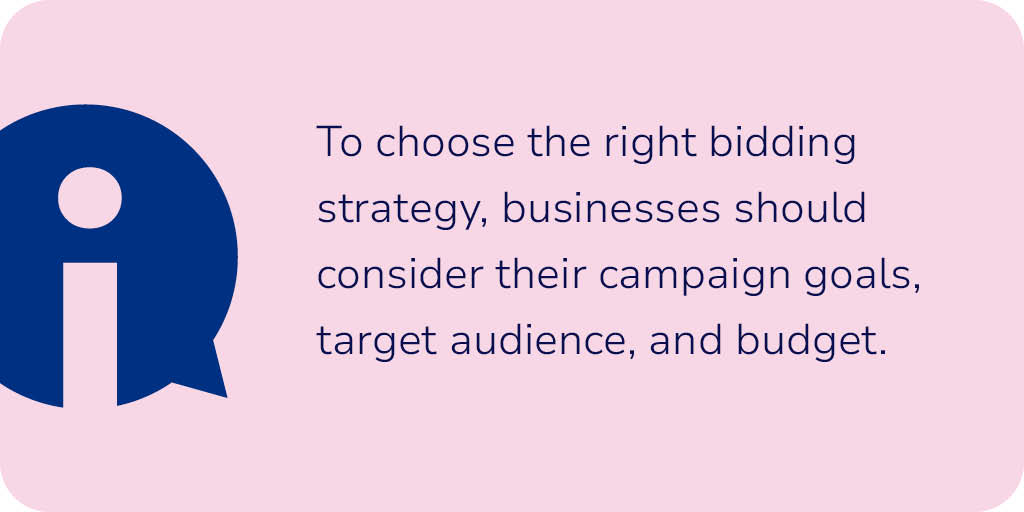
Conversion Tracking and Optimization
Conversion tracking and optimization are critical for measuring the effectiveness of B2B Google Ads campaigns and driving conversions. Conversion tracking involves tracking specific actions, such as form submissions or purchases, and attributing them to specific ad campaigns.
To optimize conversions, businesses should focus on the following key elements:
- Conversion tracking: Tracking specific actions and attributing them to specific ad campaigns. This helps in understanding which ads are driving results.
- Landing page optimization: Optimizing landing pages for relevance, clarity, and concision to drive conversions. Ensure your landing page content aligns with your ad copy and provides a seamless user experience.
- Ad copy optimization: Optimizing ad copy for relevance, clarity, and concision to grab the attention of potential customers. Regularly test different versions of your ad copy to see what resonates best with your audience.
- Bidding strategy optimization: Optimizing bidding strategies to drive conversions and revenue. Adjust your bids based on performance data to ensure you’re getting the best return on your ad spend.
By optimizing conversions, businesses can improve the effectiveness of their B2B Google Ads campaigns and drive revenue. Continuous monitoring and tweaking of your campaigns will help you stay competitive and achieve your business goals. Take the first step towards maximizing your advertising potential by scheduling a free consultation with Bohu Digital today.

